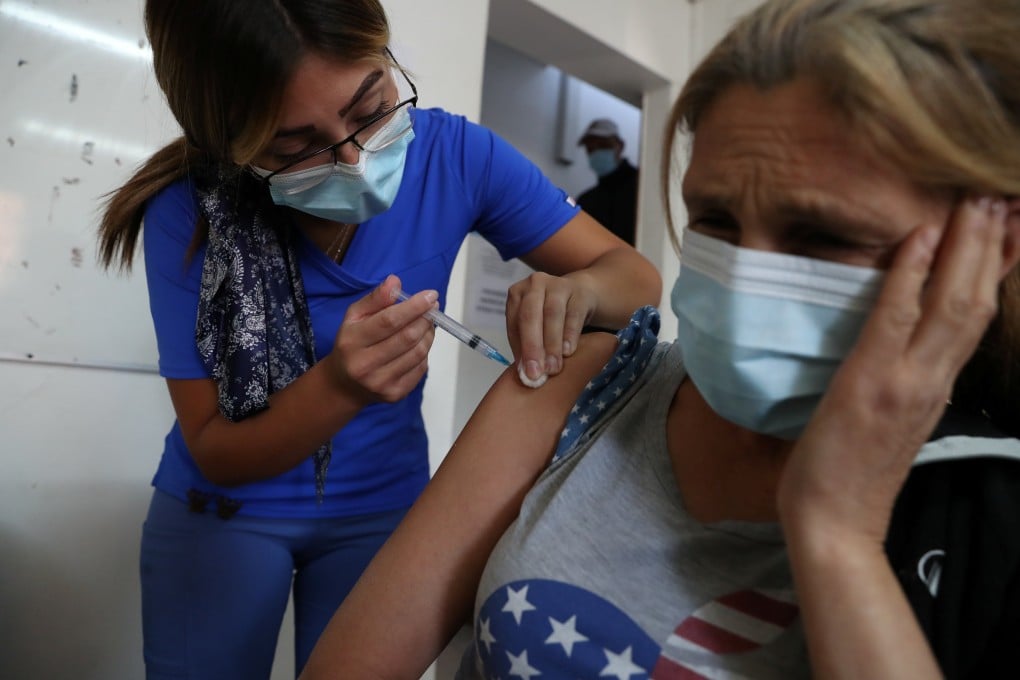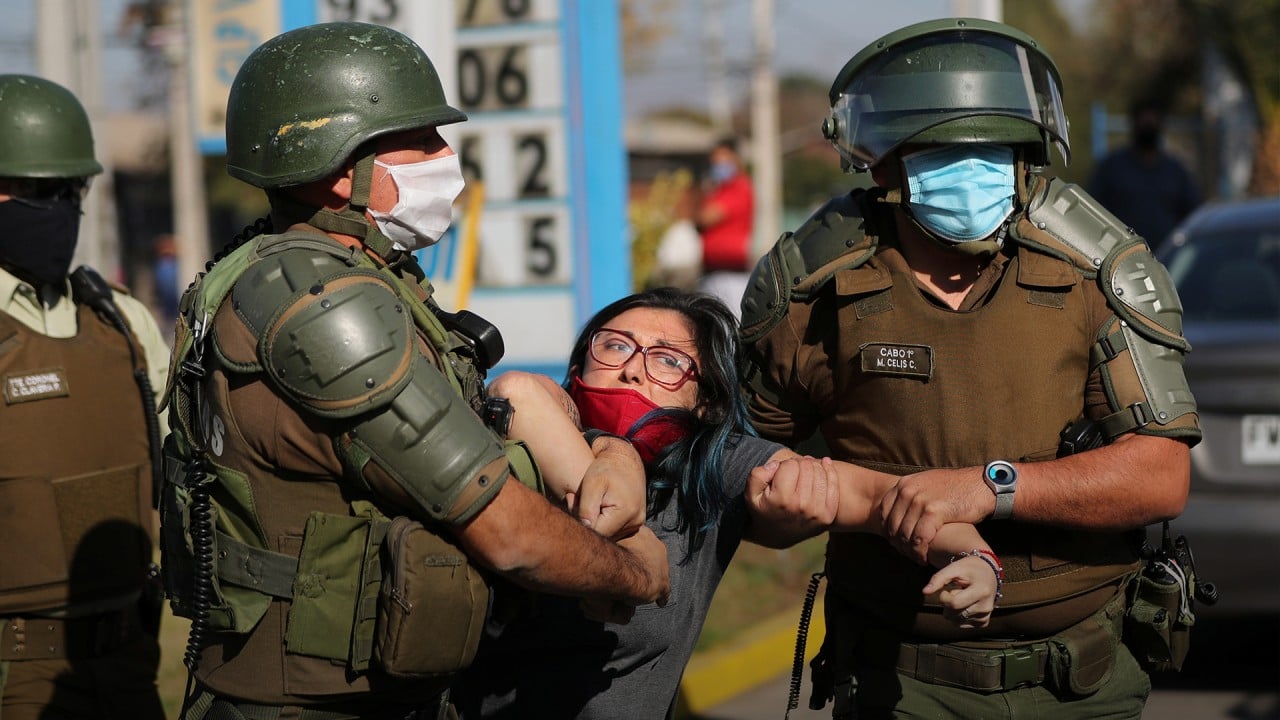Chile Covid-19 vaccination drive adds to Sinovac efficacy data
- As the country grapples with rising infections, results from its vaccinated population echo Brazil’s trial of the Chinese jab
- The 56.5 per cent rate of effectiveness is lower than some rivals, but still higher than World Health Organization guidelines

But the study by the University of Chile also found that one dose of the Sinovac jab was only 3 per cent effective against infection, underscoring the need to get fully vaccinated. Efficacy rises to 27.7 per cent within two weeks after the second jab, reaching 56.5 per cent a fortnight later, according to the university.
Chile has vaccinated 7.2 million people to date, with 4.3 million having received their second dose. More than 93 per cent of those who have had both jabs received the Sinovac vaccine. The South American country has also approved the Pfizer-BioNTech and Oxford-AstraZeneca vaccines and, on Wednesday, Chinese company CanSino’s single-dose vaccine was added to the emergency list.
On Thursday, Chile reported 8,195 new Covid-19 cases – its highest daily count since the outbreak, and the third time more than 8,000 new cases were recorded in a single day. In the same 24-hour period, 183 deaths were recorded, bringing the country’s fatalities from the disease to 23,979.
Deputy health minister Paul Daza described the situation in Chile as “very complex”, with more than 80 per cent of the population in quarantine and its borders closed. There has also been a radical change in the age groups being most affected by the disease, with patients aged under 39 years now outnumbering the over-70s.
